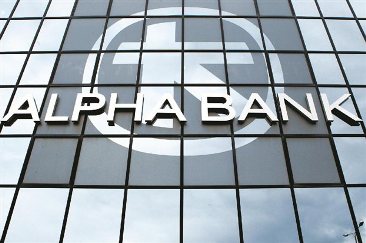Picture: www.fimes.gr
A scenario for breaking the deal between the National Bank of Greece and Eurobank is spreading on the market, because of the Troika’s refusal to extend the term for capital increase of the new institution. The processes of the two banks’ merger were accelerated, in order to complete the legal merger in early June. The management of the National Bank has asked Greek authorities to extend the deadline for capital increase, so that the new bank will be able to address investors as a single entity. However, the Troika has no intentions of accepting this argument and insists that the capital increase of all “good” banks be finalised no later than the end of May.
Nationalisation
This fact hinders the attempts of the National Bank to sell at least 10% of the new shares to private investors so that its current shareholders can avoid losing control of the management. This percentage corresponds to at least 1 billion euro and the two banks have a shortage of capital amounting to 15 billion euro, part of which can be covered by contingent convertibles, also known as CoCo bonds (or CoCos), and deferred tax, part of which is not yet acknowledged. This is a large number of shares that the National Bank should sell for a period which is not favourable for the banking sector after the events in Cyprus, and the operation is more difficult, because during this period it will ask for money from the market and the other two “good” banks, Alpha Bank and Piraeus Bank.
Loss of control
The National Bank, in response to those who warned about its possible nationalisation, said categorically that the merger of the two groups was irreversible and it did not matter whether at least 10% of the increase would be covered, since today the bank was also controlled by the state. “Whether the Financial Stability Fund’s participation will be 90% or 100%, in both cases the state controls the management,” stated the bank. In connection with the probability of no extension and the danger that two separate capital increases be implemented in the National Bank and Eurobank, it was stressed that there was no danger of cancellation of the transaction, provided that Eurobank would be a subsidiary of the National Bank – a fact that will allow them to develop two separate processes without compromising the merger.
The scenario of the disaster
Well-informed banking sources indicated that the problem was not in the process of capital increase, but in the ability of the group to gather at least 10% of the capital it needs. They emphasised that if this goal was not met, the bank would pass under the control of the Financial Stability Fund, and that would mean that it would be controlled entirely by the Troika which would gain super powers, being able to decide the future of the National Bank of Greece without asking anyone about it ... If the Troika decides that the merger of the National Bank and Eurobank is unprofitable, it will not be difficult to declare the second bank for sale, the same sources explained. And in this way, yet another big banking transaction will be broken.
 In turn, Alpha Bank invited its shareholders to a general meeting in order to decide the issuance of new shares worth 4.57 billion euro. According to the statement of the bank's management, the primary objective is to raise 550 million euro from private investors - this amount corresponds to 12% of the capital it needs. In this case, the goal of at least 10% that provide for the private nature of good banks will be covered and the bank will avoid the issuance of CoCos, the price of which will be high, starting at 7% in the first year.
In turn, Alpha Bank invited its shareholders to a general meeting in order to decide the issuance of new shares worth 4.57 billion euro. According to the statement of the bank's management, the primary objective is to raise 550 million euro from private investors - this amount corresponds to 12% of the capital it needs. In this case, the goal of at least 10% that provide for the private nature of good banks will be covered and the bank will avoid the issuance of CoCos, the price of which will be high, starting at 7% in the first year.
Plan B
In the case that this goal is not achieved, there is an alternative scenario which envisages a reduction in the issuance of shares and granting of CoCos to the Financial Stability Fund. Thus, the amount that would correspond to 10% of the increase in cash would be reduced, giving the bank control over shareholders, who would deposit money. In this way, the bank would secure investors who would want to participate in the capital increase if there was no one to guarantee the coverage of the increase. For example, if 300 million euro is raised from private investors, the bank will limit the amount of increase in cash from 4.57 billion euro to less than 3 billion euro. The remaining 1.5 billion will ensure the provision of CoCos to the Financial Stability Fund and the rate of coverage of the increase will be formed according to a percentage of the minimum limit.
According to some information, the management of Alpha Bank thinks that it will provide a logical amount that will be a vote of confidence in the work of the bank. It is no coincidence that Dimitris Mandzounis, CEO of the bank, made a statement on the occasion of the publication of the results for 2012, in which he expressed optimism about the coverage of the capital increase. “Alpha Bank will be able to keep its private nature,” he said.